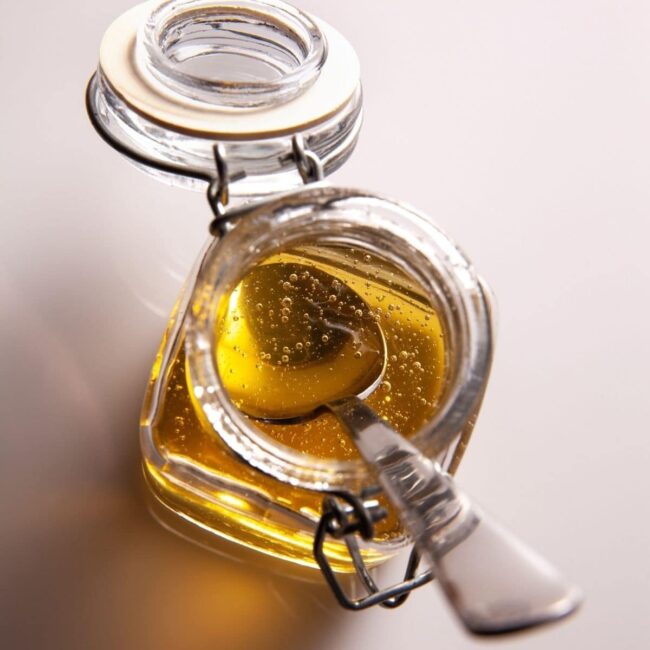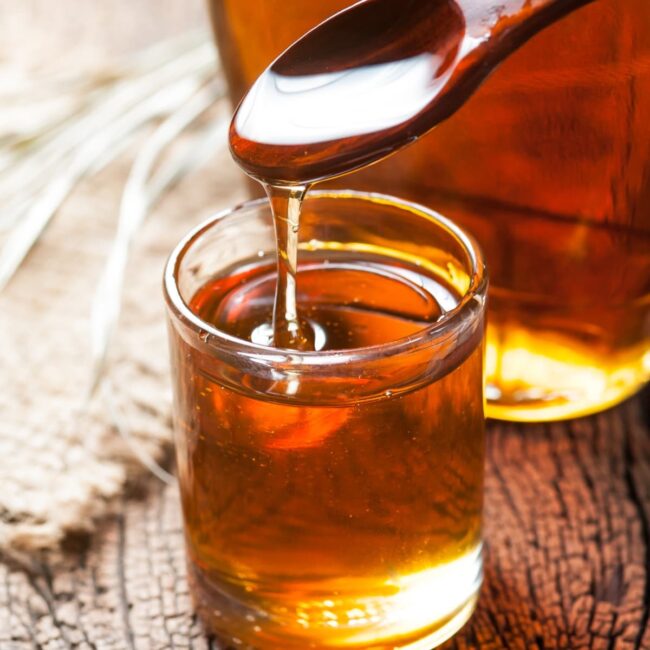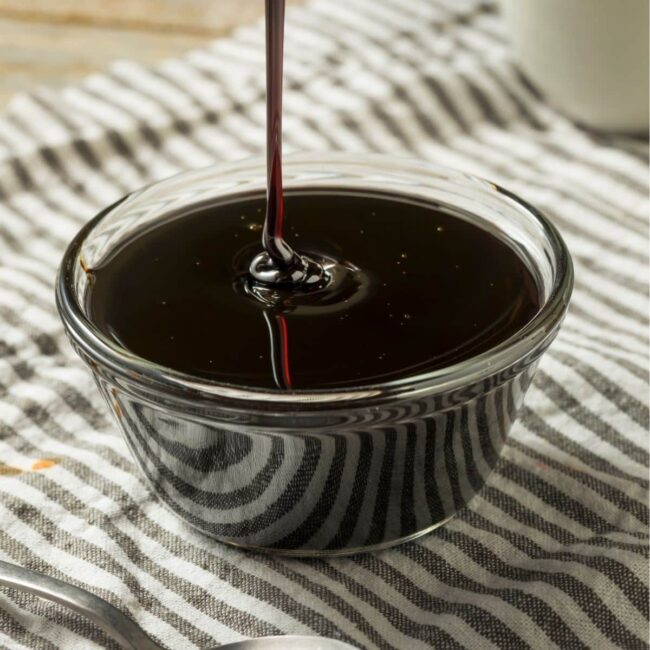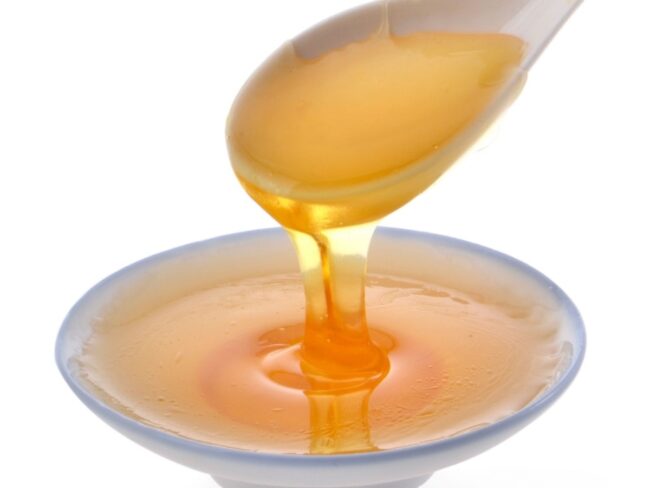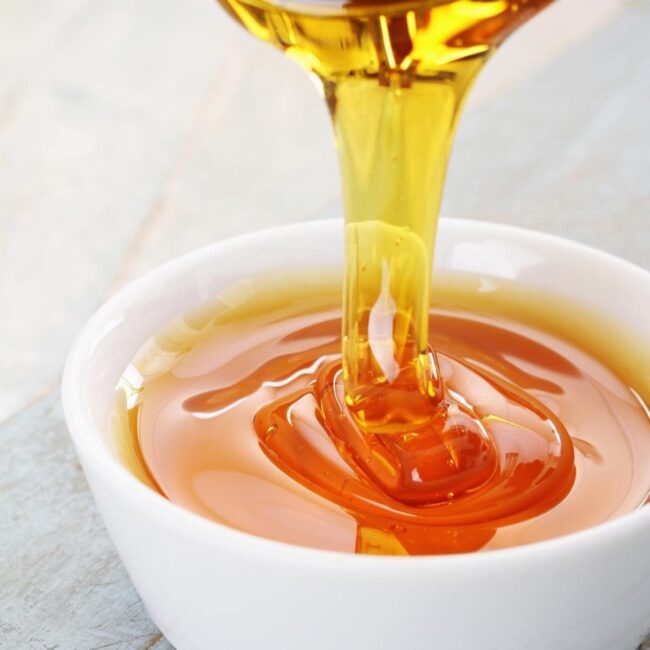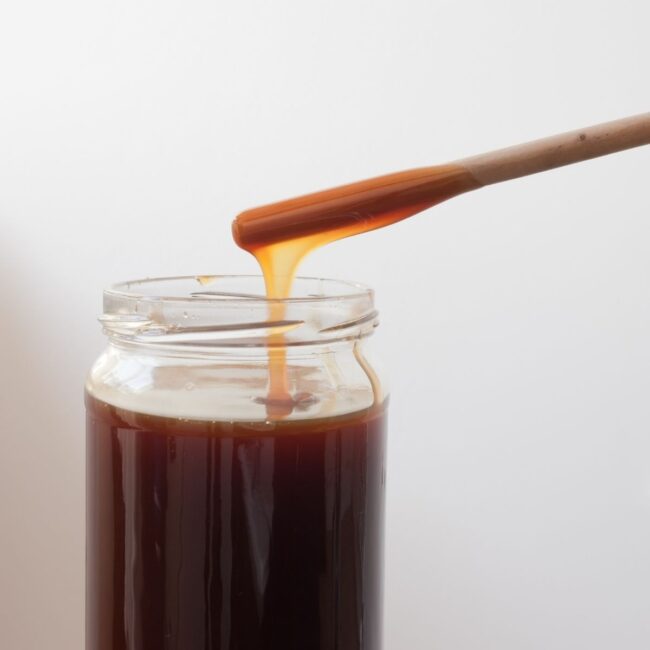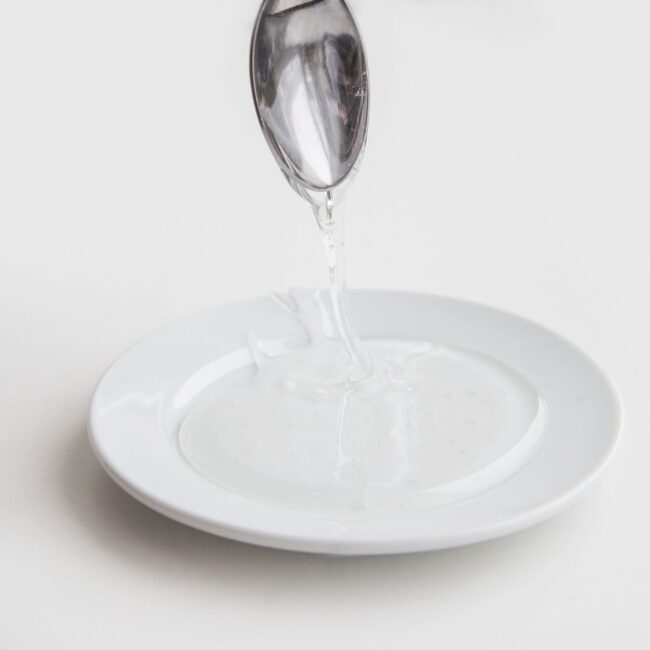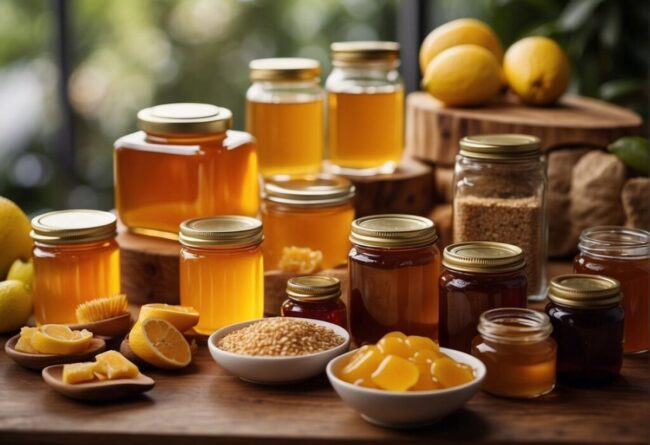7 Honey Substitutes for Natural Sweetness in Recipes
Honey substitutes provide natural sweetness with varying levels of richness and depth. Some alternatives offer a smooth, mild flavor, while others bring a bold, caramel-like undertone.
The best choice depends on whether the recipe needs a thick, syrupy texture or a lighter, more liquid consistency. A few options blend beautifully into teas and glazes, while others enhance baked goods and sauces.
Certain substitutes bring added nutrients, making them a great alternative to traditional honey. Looking for a sweet swap?
These 7 honey substitutes will do the trick:
What Makes Honey Unique?
Learn about the special qualities that make honey different from other sweeteners.
How Natural Sweetness Affects Flavor
Honey’s rich flavor comes from its natural sugars, primarily fructose and glucose. The balance of these sugars creates a sweet, smooth taste that can vary based on the nectar source.
With its versatile taste and natural appeal, honey is a delicious way to enhance a variety of foods!
Cooking with Different Textures
Honey isn’t just a natural sweetener, it’s a versatile ingredient that enhances texture, moisture, and flavor in recipes.
Why honey works so well:
With its smooth consistency and natural benefits, honey is an excellent ingredient for both sweet and savory dishes!
Health Benefits and Nutritional Value
Honey offers more than sweetening your dishes.
Best Honey Substitutes and Their Uses
These alternatives provide the same sweetness and consistency as honey in cooking and baking.
Agave Nectar and Syrup
Agave nectar is a natural sweetener extracted from the agave plant, known for its higher sweetness compared to honey and a more fluid texture. This syrupy alternative offers an intriguing option for those looking to enhance their recipes without overwhelming them with sugar.
With a lower glycemic index than regular table sugar, it can be appealing if you're aiming for better blood sugar control while still enjoying your favorite flavors. You’ll find that using less of this sweetener achieves comparable results in taste, making it both efficient and effective in various culinary applications.
Whether drizzled over pancakes or stirred into beverages, agave nectar brings versatility to any dish you want to elevate subtly.
Maple Syrup
Maple syrup stands out as a flavorful alternative to honey, deriving from the sap of maple trees. Its rich and woodsy essence brings a unique fall-inspired character to various dishes beyond just breakfast favorites.
When you incorporate it into your cooking or baking, you'll appreciate its adaptability in both sweet treats and savory meals alike. This natural sweetener enhances flavors seamlessly, making it an excellent choice for glazes, marinades, or even desserts.
You might find yourself reaching for this versatile ingredient whenever you want to add depth and warmth to your culinary creations while reducing reliance on traditional honey sources.
Molasses Varieties
Molasses varieties are distinct by-products of sugar refinement, each bringing its own unique flavor profile to the table. Light molasses delivers a gentle sweetness, making it an ideal choice for baking delicate treats like cookies and cakes.
Dark molasses offers a more robust taste that enhances recipes such as gingerbread or savory baked beans with depth and richness. Blackstrap molasses stands out for its intense bitterness yet is packed with nutrients; this variety tends to be used less frequently in sweet dishes but can add complexity when utilized thoughtfully in marinades or sauces.
Exploring these options allows you to find the perfect match for your cooking needs while adding character to your culinary creations.
Rice Syrup & Brown Rice Syrup
Rice syrup is a sweetener derived from brown rice, known for its increased sweetness and thicker consistency. Its unique texture makes it ideal for recipes like granola bars or energy snacks, where a sticky binding agent enhances the overall structure.
Brown rice syrup boasts a mild flavor profile that allows other ingredients to shine while providing natural sweetness without overpowering them. When you incorporate this alternative into your cooking or baking, you'll appreciate how it harmonizes with various flavors in health-conscious dishes.
It's not just about replacing sugar; it's about elevating your creations with an ingredient that's versatile and wholesome.
Golden Syrup
Golden syrup is a thick, amber sweetener derived from cane sugar that brings a unique buttery flavor to various recipes. Its smooth consistency makes it an excellent choice for baking, allowing you to enhance the texture and sweetness of treats like cookies or cakes effortlessly.
This versatile ingredient can also be drizzled over pancakes or used in desserts, offering an appealing alternative to traditional honey. When substituting for honey, golden syrup provides similar moisture while imparting its own distinct taste profile into your culinary creations.
Integrating this sweetener adds depth and richness without overwhelming other flavors in your dish.
Barley Malt Syrup
Barley malt syrup is a natural sweetener known for its distinctive malty flavor and lower sweetness compared to traditional honey. It enhances the taste of baked goods, particularly in bagels and artisan breads, lending them a rich depth that’s hard to replicate.
You might find it adding complexity to sauces or marinades as well. This versatile syrup not only contributes moisture but also offers nutritional benefits like vitamins and minerals from barley.
With its unique profile, barley malt syrup stands out as an excellent alternative for those seeking different flavors while reducing sugar levels in recipes.
Corn Syrup (Light and Dark)
Corn syrup stands out as a versatile sweetener, offering both light and dark varieties. Light corn syrup delivers a gentle sweetness that enhances desserts without overpowering other flavors, while its dark counterpart introduces rich molasses undertones that elevate the taste profile of baked goods.
These syrups are frequently utilized in candy recipes and pie fillings, where they contribute to texture and moisture alongside their sweetening properties. For those looking to experiment with alternatives, corn syrup provides an accessible option with unique characteristics suited for various culinary applications.
You might find it indispensable in your baking adventures or when crafting homemade confections.
Best Alternatives for Baking Without Honey
Discover substitutes that work well in baked goods instead of honey.
Tweaking Sweetness and Thickness
Choosing the right alternative for honey can change how sweet and textured your baked goods turn out.
How Much to Use in Recipes
Finding alternatives to honey can enhance your cooking and baking adventures. Several substitutes provide unique flavors while maintaining sweetness.
Impact on Color and Flavor in Baking
Exploring various substitutes can significantly impact both the appearance and taste of your baked items.
Cooking and Sauces Without Honey
Learn which ingredients can replace honey in savory dishes.
Best Substitutes for Marinades and Glazes
Marinades and glazes can benefit greatly from using natural sweeteners like maple syrup and molasses. Both options provide a unique flavor profile that complements meats and vegetables beautifully.
These alternatives not only enhance flavors but also add depth to your culinary creations without overwhelming them.
Enhancing Dressings and Sauces
When looking for alternatives to honey in dressings and sauces, several options stand out due to their unique properties.
Always keep in mind each alternative's distinct characteristics; some might need thinning with water or oil to achieve the desired consistency within your recipes.
Choosing Healthier Sweeteners Instead of Honey
Find out which honey alternatives are better for a health-conscious diet.
Considering Sugar Intake and Calories
Understanding the nutritional aspects of sugar alternatives is vital for making informed choices about honey substitutes. A few options stand out due to their unique properties and health benefits.
Allergies and Diet Restrictions
When choosing honey alternatives, it's crucial to consider potential allergens that might affect your health. Allergies to pollen can cause reactions with some natural sweeteners, so understanding what you're consuming is important.
By being mindful of these factors, you can find safe and suitable sweetening options for your dietary requirements. Always check labels thoroughly before making a choice.
Comparing Natural and Refined Sugars
Natural sweeteners serve as a healthier alternative to refined sugars, preserving valuable nutrients often lost during processing. Not every natural option is low in calories or devoid of sugar, so understanding the differences is essential.
Choosing wisely between these options can make a significant difference for those aiming for better health without sacrificing flavor.
Sweetener Options for Special Diets
Explore sugar substitutes that fit dietary restrictions and preferences.
Using Stevia and Monk Fruit as Sweeteners
Stevia and monk fruit are natural sweeteners recognized for their ability to provide sweetness without impacting blood sugar levels, making them excellent choices for individuals managing diabetes or those reducing carbohydrate intake. Liquid stevia comes from the leaves of the stevia plant and serves as a calorie-free alternative that boasts significantly more sweetness than regular sugar.
Monk fruit sweetener, derived from the luo han guo fruit, shares this characteristic of being free from calories while delivering its unique taste profile. Both sweeteners accommodate vegan diets seamlessly and work harmoniously in drinks or various baked recipes.
With these options at your disposal, you can enjoy satisfying flavors without compromising health goals.
Sugar Alcohols and How They Work
Sugar alcohols like erythritol and xylitol serve as excellent low-calorie sweeteners that won’t disrupt your blood sugar levels.
Here's what you should know:
Moderation is essential since consuming these can lead to digestive discomfort, so start slowly and observe how your body reacts to them.
Using Fruit-Based Sweeteners
Several alternatives from the fruit family can provide sweetness along with valuable nutrients.
Using these fruity substitutes not only brings sweetness but also contributes moisture to your creations, making them suitable for vegan diets or specific dietary needs.


